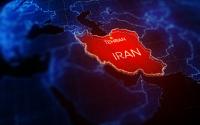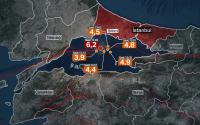October 4, 2002The Guardian
George Bush is bent on war against Iraq. All the world knows it, from Blackpool to Baghdad, and from Paris to Moscow. That is why the manoeuvring over United Nations resolutions and arms inspections has an unreal quality. It is just possible that UN-approved coercive inspections, of a kind that would so humiliate Saddam Hussein that he might fall without war, can prevent a conflict. But, aside from this thin chance, international diplomacy now is less about preventing war than about preventing an open break between America and Europe and Russia.
It is also about what other powers will be able to say about the war after it is over, and what influence they will have on postwar American policy. That they tried to prevent it, if it proves a disaster, that they were supportive, if it proves a success, that they kept it within the bounds of international law, or that America and Europe can still act together, whichever way it goes.
In other words, we are not discussing what we seem to be discussing but something else. This may not be either honest or rational, but reaction partakes of the quality of action, and going to war against Iraq in the way that the US plans to do is not a rational project. Let us add at once that few enterprises of this kind have been rational. Was the Vietnam war rational? Was the Falklands war rational? Is Chechnya rational? Saying an Iraq war is not rational does not mean that reasoning has not gone into the decisions which led to the policy. "Reasoning" and "rational" are not the same.
An Iraq war looms because a group of American conservatives, now very influential inside and outside this administration, came to the conclusion years ago that Saddam had challenged the US and got away with it, and that his victory could not be allowed to stand.
Not allowed to stand because he might once again disturb a region of political and economic importance to the US, and because he might threaten Israel, a cause as dear to the hearts of most of this group as the security of America itself, or understood as indistinguishable from it.
Not allowed to stand, also, just to show how feeble the previous Democratic administration had been. Not allowed to stand, finally, because the US could not be seen to be thwarted. It set the wrong precedent. Let the precedent, rather, go the other way and show that a tyrant who defied America would regret that choice. Others would take note. It may be that an Iraq war will be above all a war of example.
It could be said that all this is rational on its adherents' terms. The irrationality lies not on that side but in the way they have looked at the risks that have to be weighed against the possible benefits, and in the larger scheme of which their Iraq project is a part. Whether such a war will increase American and Israeli security, or strengthen the America-centred world order, the proponents of war cannot know and will not know, perhaps, for quite a long time after the war is over.
There is more uncertainty here than there always is in war planning, because of the imponderables of weapons of mass destruction and of the effect of a conflict on Muslim attitudes. Then there is the imponderable of what the Bush hawks would do with a victory, of whether they would go on to try to re-order the whole of the Middle East in an over-ambitious surge that could lead to disaster.
The critics, of course, also have no foreknowledge. The one thing that can be said for certain about wars is that the risks and costs, political as well as purely military, are almost always either underestimated, as in Vietnam, or exaggerated, as they were in Kosovo and Afghanistan. The coming war is clearly not being rationally discussed in the US. With only a few exceptions, dissent has fastened on detail, pace and style. Republicans are committed, with a few honourable exceptions, to the position that the administration's policy is unarguably right. Democrats, again with a few exceptions, are committed to the principle that they must not be seen to be against the war, in case it is a huge success, but should have sounded enough warning notes to be able to accuse the Republicans of mismanaging it in case it turns out for the worse.
The rational position on Iraq is neither that war is absolutely necessary to deal with an increasingly dangerous Saddam nor that war is an absolutely crazy and immoral undertaking. It is perhaps best put by saying that some of the consequences of a succesful war, above all the liberation of the Iraqi people, are very desirable, but that the risks of war are nevertheless higher than the risks of carrying on with some form of containment.
If the decision was still in play, then debate should be vigorously joined on this issue. But the decision is not still in play. Debate on whether the war is right or wrong will not now influence the Americans. What happens when an enterprise of this kind is undertaken by a great power is that nations and other groups consult their interests. The arguments now are not about right and wrong, but about where interests do or do not coincide.
At one end of the spectrum are sections of the Iraqi opposition. They do not worry themselves over the fact that the fate of the Iraqi people has never been high on the administration's list. It is enough for them, as one Iraqi puts it, that "the US has decided it is in their interests to do what we want them to do".
The Labour government under Tony Blair is in an oddly similar position in that Blair sees an Iraq war as a continuation of the humanitarian interventions of the 90s. For him, it will be about rescuing the Iraqi people, and about trying to reconcile American power with the international institutions in which Blair believes far more than does the Republican right wing.
As for other European states, their common concern is to limit the damage to the American-European relationship. Europe does not wish to find itself alone, after the war, looking at an alienated America in one direction and at a dangerously disturbed Middle East in another.
We are bumping along towards a conflict which will settle much more than the fate of Iraq. Its outcome will surely shape both American politics and the whole of international life for years to come. Some good may come of it, and certainly some bad. In what measure is to some extent still open to human control. How to exercise that control is the difficult question now faced by all nations.






